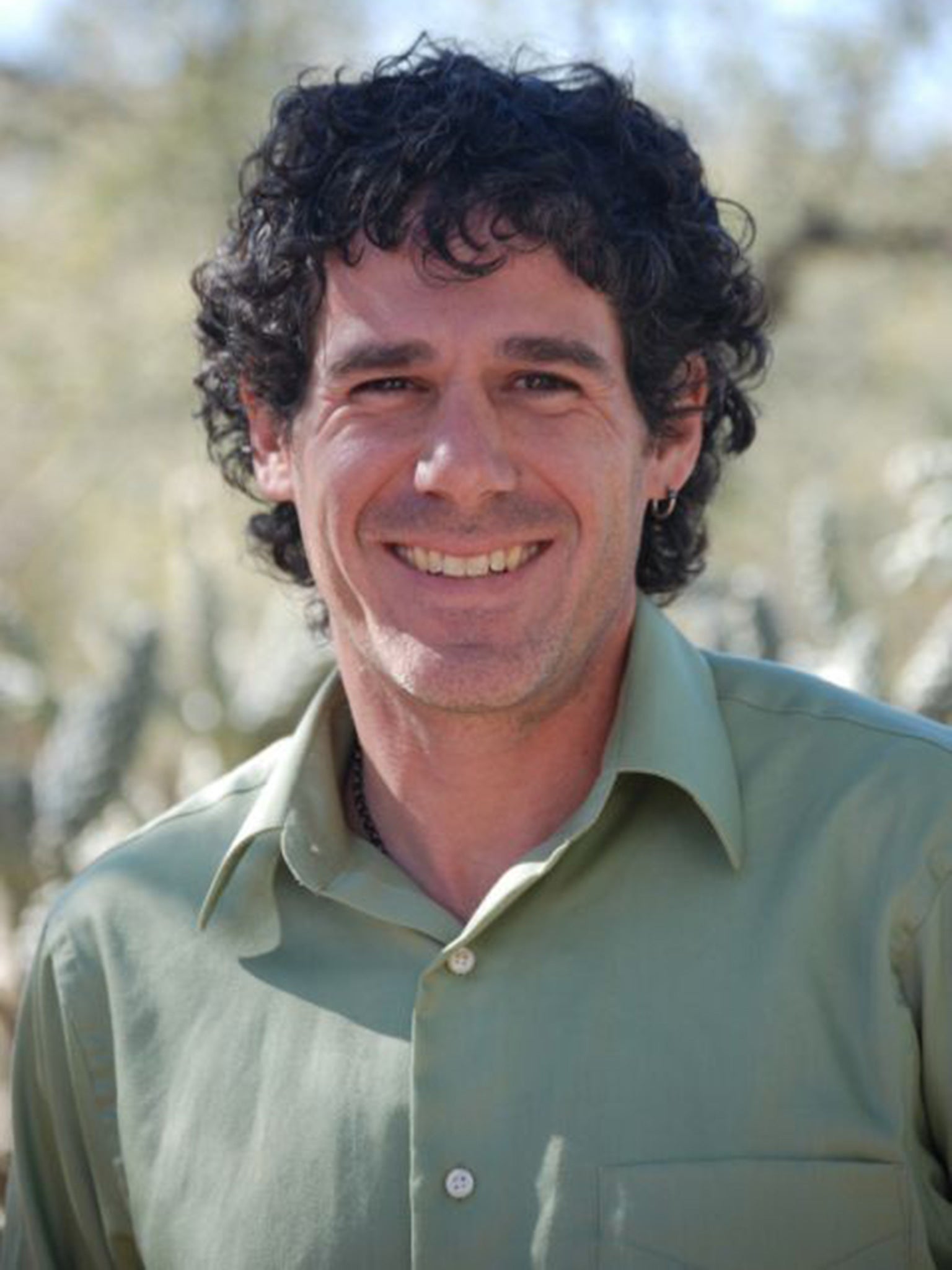Rafe Sagarin: The scientist's theory on national security was based on animal behaviour
He looked into the octopus' behaviour to think of better ways of protecting the nation from terrorist attacks

Your support helps us to tell the story
From reproductive rights to climate change to Big Tech, The Independent is on the ground when the story is developing. Whether it's investigating the financials of Elon Musk's pro-Trump PAC or producing our latest documentary, 'The A Word', which shines a light on the American women fighting for reproductive rights, we know how important it is to parse out the facts from the messaging.
At such a critical moment in US history, we need reporters on the ground. Your donation allows us to keep sending journalists to speak to both sides of the story.
The Independent is trusted by Americans across the entire political spectrum. And unlike many other quality news outlets, we choose not to lock Americans out of our reporting and analysis with paywalls. We believe quality journalism should be available to everyone, paid for by those who can afford it.
Your support makes all the difference.Rafe Sagarin was a marine ecologist who pioneered new ways of thinking about protecting national security through the lens of the environment and animal behaviour. His 2012 book, Learning From the Octopus: How Secrets From Nature Can Help Us Fight Terrorist Attacks, Natural Disasters, and Disease, suggested that policy-makers could learn critical defence techniques by studying how animals have evolved to counter threats they face in the wild.
Sagarin started thinking about the need for security experts to adapt while he was working as a science adviser to the then Congresswoman Hilda Solis in the aftermath of the 9/11 terrorist attacks. “I’d watch these other Capitol Hill staffers, and I noticed that they’d just put their hand over the keys in their pockets so they didn’t have to waste 30 seconds putting it on the conveyer belt though the security screening – and that didn’t set off the alarm when they did that,” he said. “It just made me think, adaptable organisms are going to figure out a way to get around this.”
He argued that decentralised decision-making – in the same way millions of cells in an octopus’s arm can transform its colour based on environmental changes, without a signal from the animal’s brain – would serve the military better than a centralised, top-down command system. The US Defence Department hired Sagarin as a consultant, although he faced scepticism.
The science director at Stanford University’s Center for Ocean Solutions, Larry Crowder, remembered sitting on a grant-making panel when Sagarin proposed bringing together experts from different fields to address homeland threats. “I thought, ‘This is ridiculous. What do evolutionary ecologists have to tell national security experts?’“ Crowder said. “Rafe consistently came up with really novel ideas that were counter to the narrative that was out there, that were on the edge. And he turned out to be right.”
In Washington, Sagarin pushed for a more comprehensive approach to ocean management and stronger federal protections for the sea while serving as the associate director of Duke’s Nicholas Institute for Environmental Policy Solutions (2006-09). He then joined the University of Arizona.
Sagarin was born in New Haven, Connecticut. His family spent summers at Cape Cod, an experience that fostered a connection to the ocean. While doing research at Stanford’s Hopkins Marine Station in California, he and three colleagues compared the abundance of the shore species off the Hopkins rocks in the 1990s to those in the same area marked by a 1930s researcher. The findings provided some of the first evidence that southern species were moving north because of ocean warming.
Sagarin also guided then-President Bill Clinton and Vice President Al Gore along the Monterey Bay’s intertidal pool in 1998 on the day Clinton announced a 10-year extension of an oil-drilling ban off US coasts. Most recently, Sagarin was creating a functioning model of the Gulf of California within the experimental station Biosphere 2, near Oracle, Arizona. He died after he was knocked off his bicycle by a pick-up truck near Tucson. The drunken driver was charged with manslaughter. µ JULIET EILPERIN
Raphael Sagarin, marine ecologist: born New Haven, Connecticut 20 June 1971; married 1999 Rebecca Crocken (two daughters); died near Tucson, Arizona 28 May 2015.
Join our commenting forum
Join thought-provoking conversations, follow other Independent readers and see their replies
Comments